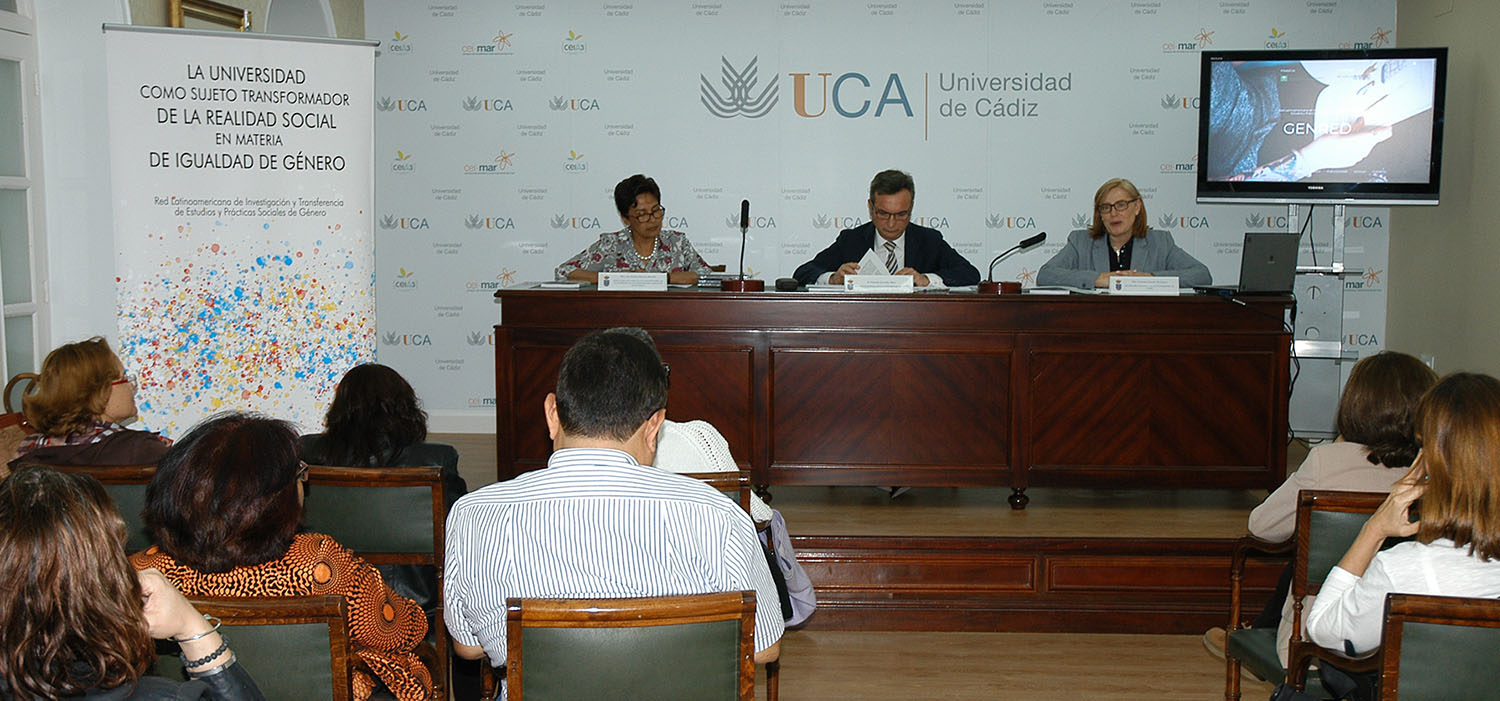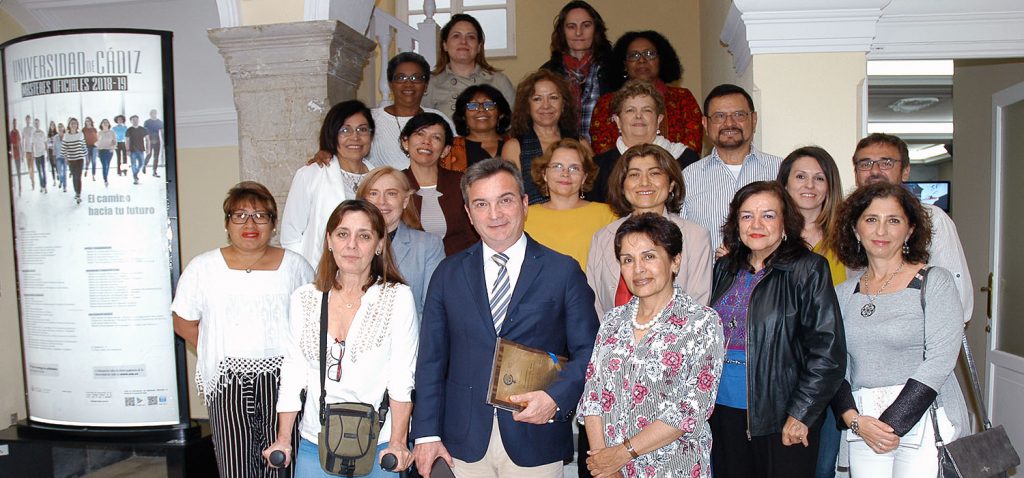UCA promotes the Latin American Network for Research and Transfer of Gender Studies and Social Practices 4 June 2018
About twenty representatives of the Andalusian Equality Units and Institutes of Women of Central American universities meet these days in Cádiz to attend an international seminar. It is part of the project ‘The University as a transforming subject of social reality in terms of gender equality’
The universities of Cádiz and San Carlos de Guatemala (USAC), within the framework of the project The University as a transforming subject of social reality in terms of gender equality funded by the Andalusian Agency for Development Cooperation of the Junta de Andalucía, lead the proposal of the Latin American Network for Research and Transfer of Social Studies and Social Practices. For this reason, a score of representatives from the Andalusian Equality and Women’s Institutes and units of Central American universities meet these days in Cádiz to attend the international seminar on Social Practices and Gender Studies.
UCA and USAC have maintained a close relationship for several years that has manifested itself in various actions. In 2005, they signed a collaboration framework agreement, ratified in 2015 and since then they have been planning and agreeing joint lines of action. Both institutions share the firm conviction “that the right to equality and the prohibition of discrimination based on sex/gender are fundamental rights recognized in all international declarations of human rights and are essential for social development”. Since October 2016 and up to now, materials and teaching content on gender issues, transfer of knowledge to social stakeholders and methodological tools on gender equality have been developed in different formats: international seminars, research, publications, etc.
This project includes the creation of the Latin American Network for Research and Transfer of Gender Studies and Social Practices (GENRED) as a goal to begin coordinating through the Equality Units or Institutes of Women of the Central American universities of Honduras, Guatemala, Costa Rica, Nicaragua, El Salvador, Panama, Mexico and Santo Domingo and the Equality Units of the public Andalusian universities a joint project on equality of opportunities in order to strengthen and make visible the gender issue and lead processes of change in matters of equality as agents of knowledge and research.



